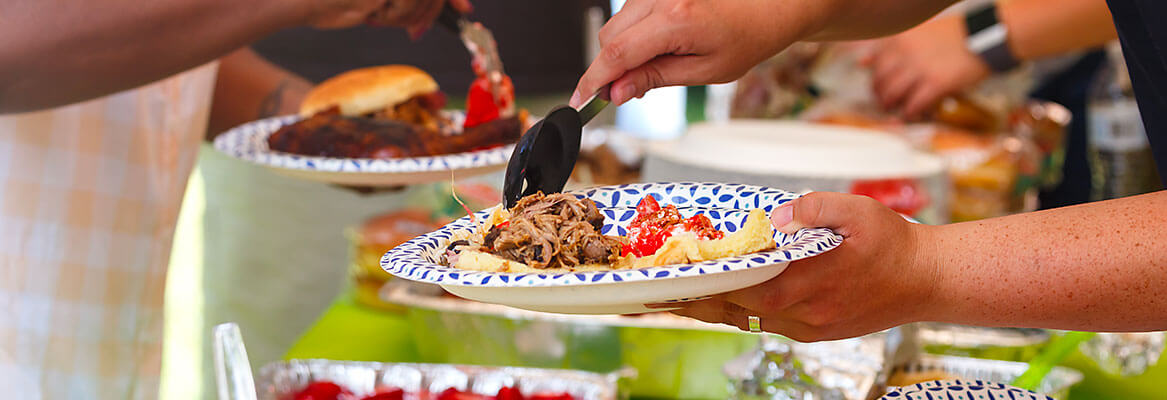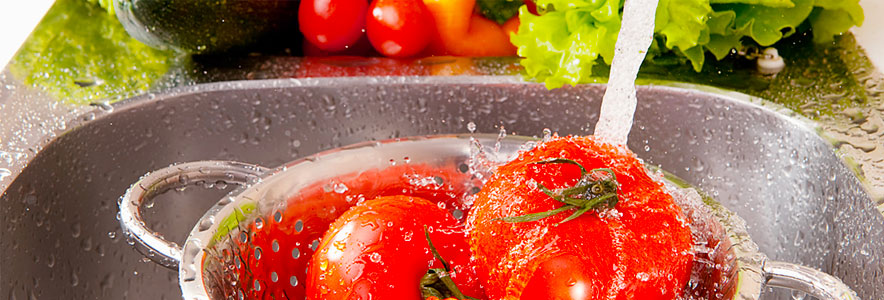
Food Safety During Summer Potlucks or Trips on the Land
Food is such an important part of summertime fun; from potlucks to picnics to packing food for trips out on the land! The last thing we want is for the food to make someone sick. It is important to follow safe food storage and preparation practices to keep everyone safe. All foods have the possibility of making us sick if not handled properly, but certain foods need extra attention.
These are called high-risk foods and include dairy products, eggs, meat and poultry and fish. The reason why foods can make us sick is because they may contain germs or harmful bacteria. Although we can’t see bacteria, they can make us sick or produce toxins that can make us sick.
Steps can be taken to kill the bacteria and stop it from growing. The Canadian Public Health Association has outlined 4 steps we can take to ensure that these foods are safe to enjoy.
- Clean
- Before preparing, serving, and eating food, it is important to wash your hands using soap and water for at least 20 seconds or use hand sanitizer
- Wash fruits and vegetables before cooking or eating
- Make sure to clean cooking surfaces, food containers and utensils with warm soapy water or a sanitizing solution
- Separate
- Raw meat, poultry or fish should be kept away from prepared and ready to eat foods
- Cut up fruits and vegetables should be kept in sealed containers
- Use separate cutting boards and utensils for raw meats and vegetables
- Use separate utensils for cooking and serving
- Cook
- It is important to fully cook high risk foods to ensure they are safe
- It is a good idea to use a food thermometer to make sure cooked foods have reached a safe temperature
- Keep hot foods hot! – serve soon after preparing and refrigerate leftovers – do not leave foods out for longer than 2 hours
- When reheating foods, a thermometer should be used again to ensure a safe temperature is reached
- Chill
- Keep cold foods cold to prevent bacteria from growing
- Hot foods should be cooled quickly in a shallow container and stored in the fridge or freezer
- Raw meat,fish, and foods like eggs, dairy products or creamy mayonnaise-based salads should be kept in the fridge or freezer.
- Keep coolers out of direct sunlight, place in the shade or put a blanket on top
- Try not to open the cooler too much
You may not have access to a fridge or freezer especially during picnics or when camping. Here are some tips to follow to keep foods safe:

- Wash everything ahead of time
- Wash fruits and vegetables under cold running water
- Wash your cooler with warm soapy water or a sanitizing solution before packing it
- Have hand sanitizer or wipes with you so that you can wash your hands even if there is no sink or soap around – you will need to wash your hands before and after handling food
- Pack cooler in layers
- Start with a layer of ice or ice packs at the very bottom
- Keep raw meat, fish, and poultry in sealed container or resealable bags and place on your first layer of ice, you don’t want juices from meat to get on other foods, especially ones that will not be cooked
- Add another layer of ice and continue to add your food with layers of ice in between
- If you can try having separate coolers, one for meat and another for fruits and vegetables or other ready to eat foods
- Try not to open your cooler often- it may be helpful to have a separate cooler for drinks that may be accessed more often
- Place food right from your freezer into your cooler, since they are frozen, they will stay colder longer
- Pack items that are more likely to stay fresh
- Whole cuts of meat like steak tends to stay more fresh than ground beef
- Pickled foods are a safer food option as they normally do not need to be kept cold
It is important that you have enough food with you for trips on the land. It is a good idea to also pack foods that don’t need to be kept cold such as breads and muffins, nuts and seeds, canned foods such as fruits, vegetables, meats, fish, soups and stews.
https://www.canada.ca/en/health-canada/services/seasonal-food-safety/summer-food-safety-tips.html
https://www.health.gov.on.ca/en/public/programs/publichealth/foodsafety/faq.aspx
